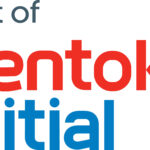
Arisha Saroop, Managing Director of The MediaShop Durban

Kantar’s Covid Barometer research shows that South Africans want brands to be purpose-led and practical, using their resources to help and inform during the global pandemic we find ourselves in.
Arisha Saroop, Managing Director of The MediaShop Durban shares a few examples of global and South African brands that have reinvented to be more purpose led.
The Covid-19 crisis has left its mark on virtually every single industry around the world and on all levels from a social, health and economic perspective. As some economies ground to a halt and others are still recovering from imposed lockdowns, there is no doubt that this pandemic challenges our ordinary and brands, like individuals, are being forced to re-examine every aspect of their daily operations, find new ways to survive, adapt, offer purposeful existence and maintain relevance within our new reality.
 The majority of clothing and accessories stores were initially considered non-essential, and employment in this already struggling sector fell by 58.9% from February to April this year as per Business Insider research – it’s no wonder then that this sector had to take the leap of adaptability during these unprecedented times.
The majority of clothing and accessories stores were initially considered non-essential, and employment in this already struggling sector fell by 58.9% from February to April this year as per Business Insider research – it’s no wonder then that this sector had to take the leap of adaptability during these unprecedented times.
With no social gatherings fighting for RSVP’s – couture wardrobe and designer accessories have taken space at the back of the cupboard. Given the increased need for personal protective items; international and local design houses have evolved their offerings to stay relevant, purposeful and to deliver a supportable service.
Internationally, Tommy Hilfiger has donated 10 000 T-shirts to Covid-19 front line healthcare workers – in an effort to provide a change of clothes for those between shifts or just to freshen up from their daily PPE wear. In addition to this, they’ve launched a special capsule collection with 100% of sale proceeds going towards pandemic relief efforts.
 Renowned French luxury conglomerate LVMH, known for their handbags and champers – swopped their leather and bubbles by converting three of their perfume manufacturing facilities, usually reserved for Christian Dior, Givenchy and Guerlain fragrances, into hand sanitizer production factories. These were given at no charge to the largest hospital system in Europe and to French authorities. Keeping staff employed and responding to public interest is what has kept this luxury brand purposeful and relevant.
Renowned French luxury conglomerate LVMH, known for their handbags and champers – swopped their leather and bubbles by converting three of their perfume manufacturing facilities, usually reserved for Christian Dior, Givenchy and Guerlain fragrances, into hand sanitizer production factories. These were given at no charge to the largest hospital system in Europe and to French authorities. Keeping staff employed and responding to public interest is what has kept this luxury brand purposeful and relevant.
It didn’t just stop at production though as one might have assumed; British brand Burberry has vouched to use its global supply chain network to deliver over 100,000 surgical masks to the NHS, and additionally, Burberry is also funding research into a single-dose vaccine developed by the University of Oxford.
Closer to home, Polo South Africa’s shirt factory in Atlantis Cape Town, recently pledged to provide 250 000 reusable and washable cotton face masks to essential service providers and at-risk commuters. Even though the masks are not medical grade, these indispensable items provide safety in reducing the virus spread. L’Oréal SA recently introduced a new range of hand sanitizers under its natural brand Garnier that will be donated to the South African Covid-19 Solidarity Fund to assist frontline workers. Iconic couture designer Gavin Rajah under his NPO White Light Movement trains victims of gender-based violence to make fabric face masks – the profits from the sales of these items assist them economically and the families they support.
 Kantar’s Covid Barometer research provides insight into consumer behaviour that South Africans want brands to be purpose-led and practical, using their resources to help and inform.
Kantar’s Covid Barometer research provides insight into consumer behaviour that South Africans want brands to be purpose-led and practical, using their resources to help and inform.
Each of these brands have shown purpose in their adaption; either by utilizing their resources for alternate production or supporting a just cause towards the fight against the invisible pandemic – this has no doubt been for the greater good of the consumers and the brand.
 This proactive reaction has kept the lights on for businesses in many aspects – by keeping their staff employed, supporting the local economy, producing essential items, staying relevant and most importantly, adding to their existence and purpose!
This proactive reaction has kept the lights on for businesses in many aspects – by keeping their staff employed, supporting the local economy, producing essential items, staying relevant and most importantly, adding to their existence and purpose!
For consumers, such adaptions and purpose driven production translates to brands that care. A renewed brand purpose is reassuring during times of crisis, as consumers may not be buying today – however when we do return to “business as usual” we will remember and reward brands that offered meaningful sustainable support.
- MRF Unveils Latest MAPS® Data - 20th February 2025
- The BRC announces changes to the board and updates for 2025 - 17th December 2024
- Top 50 DSTV TV programmes – October 2024 - 12th November 2024


